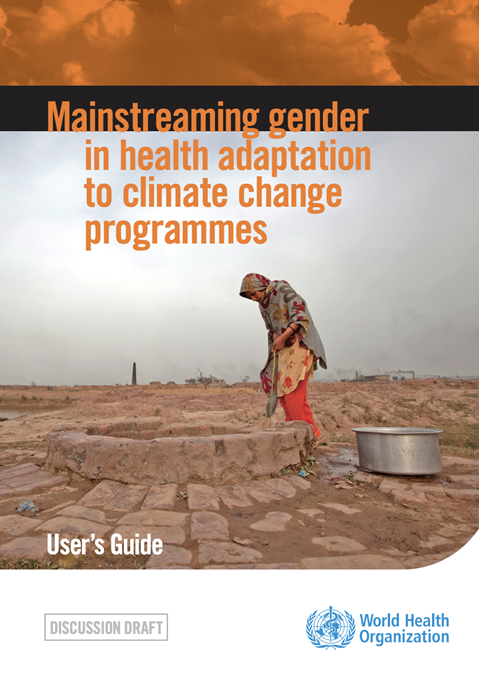Mainstreaming gender in health adaptation to climate change programmes

Overview
Over the past few decades, global research has shown that gender inequalities can give rise to health inequities between men and women and between boys and girls. A growing body of evidence also indicates that climate change is already causing negative health impacts, mainly felt by the most vulnerable populations, usually living in countries where the health system is less resilient to climate variability and change. Consequently, when climate change interacts with gender inequalities, it results in more pronounced negative health impacts in one sex over the other.
To effectively mitigate the different adverse health effects of climate change on women and men, it is imperative to employ scaled adaptation approaches that mainstream gender in all climate change and health programmes. These approaches must tackle gender inequality directly, moving towards empowering vulnerable groups as active agents of change instead of regarding them as passive in relation to climate change challenges.
This guide is targeted towards programme managers who work in climate change and health adaptation, and provides them with practical information and concrete guidance to mainstream gender throughout all four phases of the project cycle: identification, formulation and design, implementation, and monitoring and evaluation.
